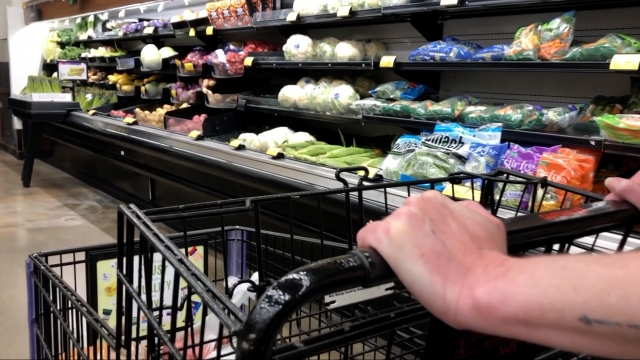When it comes to getting sick with COVID-19, you might be thinking about this, and we have too. Katiana Krawchenko asks:
"So you’re in the grocery store and touch something someone else has touched. What’s the risk?"
Newsy asked the experts: Jason Farley, professor of nursing, infectious disease-trained nurse epidemiologist and nurse practitioner in the Division of Infectious Diseases at the Johns Hopkins Schools of Nursing and Medicine; Katie Cary, vice president of infection prevention, HCA Continental Division; and Dr. Mary Schmidt, president of Schmidt and Libby Health Advisory Group, board-certified infectious diseases doctor, associate professor at Virginia Commonwealth University and clinical faculty at the Northern Virginia Inova.
Their take — contracting COVID-19 from grocery shopping is medium risk.
"In the grocery store, you should basically treat the environment as contaminated, treat it as if it has virus on it. When you've completed your shopping experience, you need to, No. 1, clean your hands. And that goes from the exchange of those groceries into the cart and the cart onto the lane and the lane in the bag," Farley said. "But most importantly, I try to Purell [my hands] before I'm handing something to the cashier to also protect them. As well as after — before and after. I'm using the PIN pad for the credit card. Again, to protect the next user who may not be as infection control savvy as I am. So that's something else you can do. And then finally, once I get my groceries in the car, I Purell again one final time just to make sure that I clean my hands before getting into my own vehicle."
"Rinsing off those fruit and vegetables or whatever you're touching before you eat them is important, but I just can't stress enough the importance of just washing your hands," Cary said.


